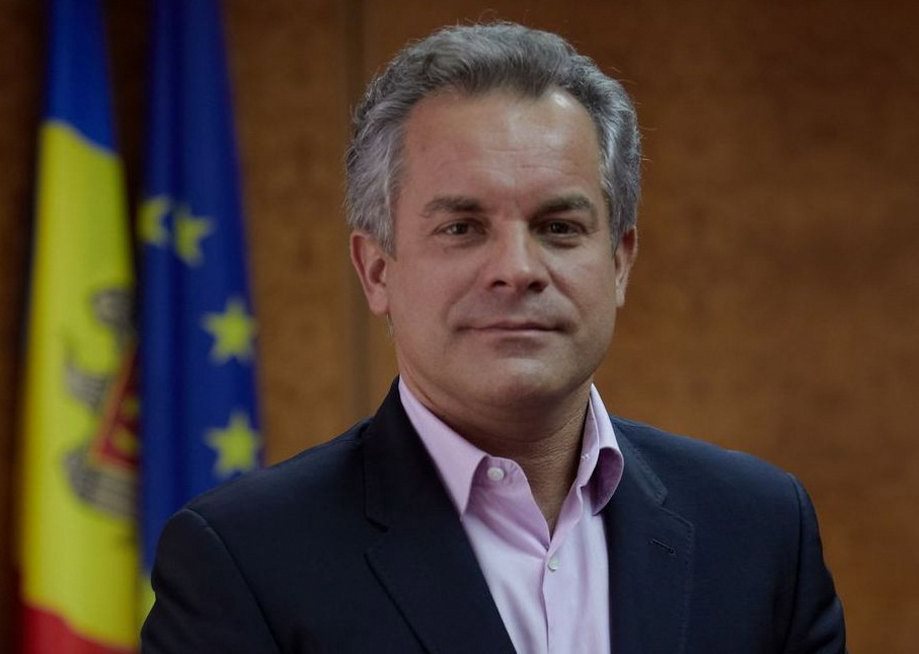
Romania Bidding For Influence In Moldova (Part One)
Publication: Eurasia Daily Monitor Volume: 13 Issue: 79
By:

For the first time since the fall of communism in Romania and the Soviet Union (1989, 1991), Romania has become an active contestant for influence in its own right in the Republic of Moldova. This policy has come about suddenly, but the prerequisites were accumulating to almost predetermine a more active and ambitious Romanian policy in Moldova.
This policy (as currently shaped), however, is heavily betting on the wrong horse: Vlad Plahotniuc, the symbol of Moldova’s kleptocracy. Of all Moldovan public figures, Plahotniuc has the worst negative rating at more than 90 percent (the difference between approval and disapproval rates) in the public opinionpolls. But Plahotniuc holds the state, law enforcement, and the economy of Moldova firmly in his grip, and has developed a pervasive political apparatus in the country. Those Romanian circles who stand behind this policy believe that working through Plahotniuc would be the most effective way to increase Romanian influence in Moldova, contain and mitigate Russian influence, and continue Moldova’s “European orientation.” Exponents of this policy in Bucharest designate Plahotniuc’s government as “pro-European”, despite all the evidence to the contrary.
Such realpolitik is defensible as long as it promises to achieve the desired results. But it can boomerang, if Moldova’s populace perceives Romania as an ally of Moldova’s emblematic “oligarch,” and the “European orientation” as synonymous with Plahotniuc’s control of the state in the name of “stability.” In that case, Romania and the European Union will lose the contest in Moldova to the local pro-Russia parties and Russia.
This policy has the upper hand in Bucharest presently, but there does not seem to be a “whole-of-government approach” to it. Policy-making regarding Moldova used to be firmly concentrated in the state presidency during Traian Basescu’s tenure (2004-2014). Presently it is not clear whether the policy originates from a single decision-making center or otherwise. President Basescu’s policy was suffused with irredentist undertones; but the current government and President Klaus Iohannis (elected in late 2014) do not use such tones. Yet, from Basescu to Iohannis, major elements of continuity persist in Romania’s policy toward Moldova: the policy keeps within the general bounds of a Euro-Atlantic consensus, and it avoids any appearance of a Romania-versus-Russia contest in Moldova. If anything Romania adds legitimacy to its Moldova policy by coordinating it with Brussels and (when Washington pays attention) with Washington.
The prerequisites to a more activist Romanian policy are both positive ones, resulting from Romania’s increasingly successful development, and negative prerequisites, necessitating responses to severe challenges in and around Moldova and in Europe writ large.
In that sense, negative prerequisites include: the European Union’s multiple internal crises, along with the failure of the EU’s Eastern Partnership; misuse of the “pro-Europe” brand by the Plahotniuc-controlled government in 2013-2015, tarnishing that political brand; full suspension of Western loans and grants to Moldova since early 2015; Moldova’s failure as a state and an economy, except the concentration of power in one pair of hands that “provides stability;” rising popularity of the Eurasia option, currently surpassing pro-Europe preferences in Moldova’s public opinion polls; surging pro-Russia parties in Moldova, far outdistancing the pro-Western parties at present in the polls (Unimedia, April 13, 21); and, hypothetically, Russian destabilization operations in Moldova if Ukraine’s situation deteriorates, a contingency that cannot be ruled out. These recent developments cumulatively require Romania to assume unprecedented responsibilities in terms of stabilizing and consolidating Moldova.
Positive prerequisites have also accumulated recently to enable an activist Romanian role. Romania’s image, traditionally unedifying with much of Moldova’s populace, is significantly improving. Economic growth makes Romania more attractive to Moldova’s citizens. Romania now enjoys annual budget surpluses and is offering a 150 million euro loan to Moldova, on conditions agreed with the EU and IMF, but less stringent than theirs (Adevarul, April 1). Romania’s crackdown on high-level corruption strongly resonates in Moldova, where the issue of corruption has almost become a national obsession, and Romania is seen increasingly as a model to follow. With generational change in Moldova, the proportion of Moldovans identifying themselves as “Romanian”—still in the minority—has risen to at least 20 percent in recent public opinion polls, double the 10 to 12 percent share recorded during the last 25 years. These recent developments create a far stronger resource base and wider scope for Romanian policies toward Moldova.
Romania’s current policy objectives include, in the short term: ensuring “political stability” through Plahotniuc’s government, his parliamentary majority, and the administrative resources and law enforcement apparatus under his control; avoiding parliamentary elections in Moldova, as long as possible and at all cost, for fear that pro-Russia parties would win and shift Moldova toward Russia; develop Romania’s own political contacts (which are still very limited) in Moldova, increase the presence of Romania’s mass media (also very limited) in Moldova, and encourage the upgrading of Moldova’s partnership with NATO. In the medium term, it envisages building electricity and natural gas inter-connections between Romania (i.e., the EU’s energy markets) and Moldova, so as to free Moldova from dependence on Russian gas and Transnistrian-supplied electricity. And in the short, medium and long term, Bucharest will undoubtedly promote Romanian national-cultural awareness in the Republic of Moldova, without officially advocating Romania-Moldova unification, but also without curbing unofficial “unionist” activities.



